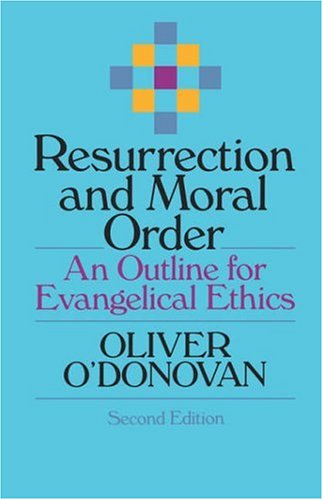A Brief Book Summary from Books At a Glance
By Steve West
About the Author
Oliver O’Donovan was Regius Professor of Moral and Pastoral Theology at the University of Oxford.
Introduction
In this book, O’Donovan argues that Christian ethics must be rooted in the resurrection of Jesus Christ. He argues that the resurrection is the pivot point for assessing ethics in a Christian perspective. Apart from God’s revelation in Christ, we could not fully assess our present situations, anchoring our present in the event of the resurrection and the eschatological goal to which creation is moving. O’Donovan maintains that Christian morality is a glad response to what God has done for us in Christ.
Table of Contents
Chapter 1 The Gospel and Christian Ethics
Chapter 2 Created Order
Chapter 3 Eschatology and History
Chapter 4 Knowledge in Christ
Chapter 5 Freedom and Reality
Chapter 6 Authority
Chapter 7 The Authority of Christ
Chapter 8 The Freedom of the Church and the Believer
Chapter 9 The Moral Field
Chapter 10 The Moral Subject
Chapter 11 The Double Aspect of the Moral Life
Chapter 12 The End of the Moral Life
Summary
Chapter 1: The Gospel and Christian Ethics
To be Christian ethics, ethics must be rooted in the gospel of Christ. Some Christians are ethical, without having a Christian ethic. Some even want to separate their faith in Christ from a unique ethic, trying to operate on the basis of natural law and philosophical axiology. To accept Christian ethics means to accept that the gospel makes moral claims and judgments. Antinomianism and moralism are two dangers that must be avoided. This book will advance, “the theological proposition that Christian ethics depends upon the resurrection of Jesus Christ from the dead.” The resurrection shows that God is bringing life out of death, and redeeming the creation. God’s created order, and human beings, are redeemed by Christ the representative. God has made the world in a particular way, and this means that morality is inescapable, and there will be commonalities in moral codes and norms. Nevertheless, people are fallen, and so their perception of moral reality is skewed—we need revelation in Christ to see clearly. Christ’s resurrection vindicates the created order, and it also orients our hope eschatologically. Our down payment of this future glory is the Holy Spirit. The Spirit, not law, is the basis for Christian ethics. We find freedom when we live in light of the gospel in God’s world. Christians find subjective moral power in Christ, to live in an objective moral order. Love requires wisdom and delight, and it allows us to perceive order and care in proper ways. Christ has authority—as Adam had authority—and in Christ, we participate in it.
Chapter 2: Created Order
In the resurrection of Christ, there is the resurrection of mankind, and so the resurrection of creation. In the created order, things are related generically and teleologically (although not everything stands in a direct teleological relationship to everything else). Moral principles also maintain generic relations to each other. Some believe we find moral truths in external reality, but others skeptically maintain that our minds and wills impose a commitment and structure upon the data. God provides the created order, and we have freedom in it to interpret the world and make moral decisions. Unless we know the chief end of man, we cannot make proper moral decisions. The generic and teleological relations of the created order are essential for moral obligations. The world is contingent (i.e. God did not have to create it, and he could have created it differently). So God is not dependent generically on the creation. God has ordered both ontological kinds and ends. Moral obligations lay upon everyone and are not individual vocational callings. We read God’s providence through general moral categories, and this is difficult because we don’t know how to read it as good in itself (i.e. there is the problem of evil; although the cross shows us that God will triumph and bring about good in the end). Not every one of God’s acts strikes. . .
[To continue reading this summary, please see below....]The remainder of this article is premium content. Become a member to continue reading.
Already have an account? Sign In
Buy the books

Resurrection and Moral Order: An Outline for Evangelical Ethics